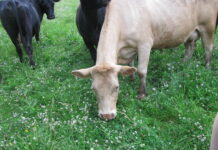Photo credit: DiasporaEngager (www.DiasporaEngager.com).
Nigeria, a nation celebrated for its cultural diversity and abundant natural resources, now stands at a precipice. The African country faces an array of security challenges that threaten not only its own stability, but also pose a significant risk to the broader region.
In the labyrinth of global geopolitics, Nigeria’s security landscape has become a chessboard for international power plays — with Iran emerging as a formidable player.
The West African giant faces a nuanced threat: the entrenchment of Iranian influence, orchestrated through the Islamic Revolutionary Guard Corps’ elite Quds Force. This calculated move by Iran not only aims to expand the Islamic Repubic’s strategic depth, but also to undercut Western influence, making Nigeria a focal point of Tehran’s broader “resistance” strategy across Africa.
Nigeria’s security quandaries are diverse and deep-rooted. The northeast reels under the Boko Haram insurgency, a jihadist group with a notorious legacy of violence and radicalism that has spilled blood and sowed discord across the Lake Chad Basin. The northwest and central regions grapple with farmer-herder conflicts that have spiraled into broader ethno-religious violence, providing fertile ground for emerging Islamist extremist factions. Meanwhile, the southeast witnesses a resurgence of separatist violence, particularly around electoral cycles, threatening national unity.
The Niger Delta’s resource curse persists, with militancy and oil theft by gangs challenging state authority and economic stability. These crises strain Nigeria’s military and police, while the impunity enjoyed by perpetrators and alleged abuses by security forces exacerbates grievances.
Amidst this chaos, Iran has found a proxy in Nigeria’s Shia minority, particularly the Islamic Movement of Nigeria (IMN), led by Sheikh Ibrahim Zakzaky. Inspired by the Iranian Revolution, the IMN envisions a theocratic state model akin to Iran’s. Despite the Nigerian government’s crackdown on the IMN, Tehran’s support remains steadfast, revealing an ambition to cement its ideological and geopolitical foothold. This alliance, however, transcends ideological kinship, encompassing military and intelligence support, though the full extent remains shrouded in secrecy.
The Quds Force’s activities in Nigeria, part of a concerted effort to elevate Iran’s influence across Africa, entail clandestine networks aimed at Western interests and personnel. This “horizontal escalation” strategy signifies Iran’s intent to counter Western presence, leveraging proxies like Hezbollah and the IMN. The provision of ideological and military training to Nigerian Shiites, notably in Lebanon, underscores Iran’s commitment to expanding its proxy warfare model to West Africa, potentially stoking sectarian tensions in a region already fraught with religious strife.
The implications of Iran’s maneuvers in Nigeria extend beyond the immediate security implications for the West African nation. They represent a strategic challenge to Western, particularly US, interests in Africa. Iran’s activities in Nigeria, facilitated through proxies, exemplify Tehran’s broader ambition under its global resistance strategy to counter Western influence and expand its geopolitical reach. This involves a calculated use of soft power, military support, and ideological propagation to cultivate allies and proxies that can serve Iran’s interests, and challenge the existing geopolitical order.
The involvement of the Quds Force in Nigeria also illuminates Iran’s broader strategy of leveraging sectarian identities to forge strategic relationships. By supporting the IMN and establishing ties with Hezbollah, Iran not only aims to challenge Nigerian sovereignty but also to create a network of influence that could serve as a bulwark against Western and Sunni Arab states’ influence in Africa.
The Quds Force’s operations in Nigeria signal a potent mix of ideological zeal and strategic ambition that could exacerbate existing conflicts and spawn new ones. The implications for regional security are profound, as the entrenchment of Iranian influence could lead to a recalibration of alliances and power dynamics in West Africa and beyond.
Moreover, the convergence of Iran’s proxy activities with the broader jihadist landscape in Nigeria, characterized by the presence of Boko Haram and its offshoot, IS-WA, introduces an additional layer of complexity to the security matrix. While these groups have primarily Sunni orientations and objectives that diverge from those of the IMN, the overarching theme of external influence and proxy warfare presents a shared thread. This confluence of interests and the potential for tactical or opportunistic alliances among these disparate groups could pose a significant challenge to counter-terrorism efforts and peace-building initiatives in the region.
Addressing the burgeoning threat posed by the Quds Force and Iran’s wider network in Nigeria requires a nuanced, multifaceted strategy that encompasses diplomatic, military, and socio-economic dimensions.
The international community, particularly Western nations, must recalibrate their engagement with Nigeria and the broader African continent to counter Tehran’s influence effectively. This involves not only bolstering Nigeria’s counter-terrorism capabilities but also supporting governance reforms, socio-economic development, and efforts to address the root causes of extremism and sectarianism.
Strategically, it is imperative to enhance intelligence sharing, bolster defensive capabilities, and strengthen diplomatic ties with African nations to create a united front against external interference. Concurrently, initiatives aimed at fostering intra-faith dialogue and reconciliation can mitigate the sectarian divide that external actors like Iran exploit.
Ultimately, a concerted international effort that combines security measures with socio-political reforms can offer a sustainable solution to the complex challenge posed by Iran’s strategic ambitions in Nigeria and Africa at large.
As Nigeria grapples with an array of security challenges, the shadow of Iran’s Quds Force looms large, representing a new front in the geopolitical contestation of Africa. The involvement of the Quds Force, through its support for the IMN and collaboration with Hezbollah, signifies Iran’s ambition to project power and influence far beyond its borders. This development demands vigilant and coordinated responses from both regional and international actors, underscoring the need for a comprehensive strategy to navigate the shadows cast by Iran’s activities in Nigeria, and ensure the continent’s long-term stability and security.
Erfan Fard is a counter-terrorism analyst and Middle East Studies researcher based in Washington, D.C. He focuses on Middle Eastern regional security affairs, with a particular emphasis on Iran, counter-terrorism, IRGC, MOIS, and ethnic conflicts in MENA. Erfan is a Jewish Kurd of Iran, and he is fluent in Persian, Kurdish, Arabic, and English. Follow him from this twitter account @EQFARD.
Source of original article: Erfan Fard / Opinion – Algemeiner.com (www.algemeiner.com).
The content of this article does not necessarily reflect the views or opinion of Global Diaspora News (www.GlobalDiasporaNews.com).
To submit your press release: (https://www.GlobalDiasporaNews.com/pr).
To advertise on Global Diaspora News: (www.GlobalDiasporaNews.com/ads).
Sign up to Global Diaspora News newsletter (https://www.GlobalDiasporaNews.com/newsletter/) to start receiving updates and opportunities directly in your email inbox for free.






























